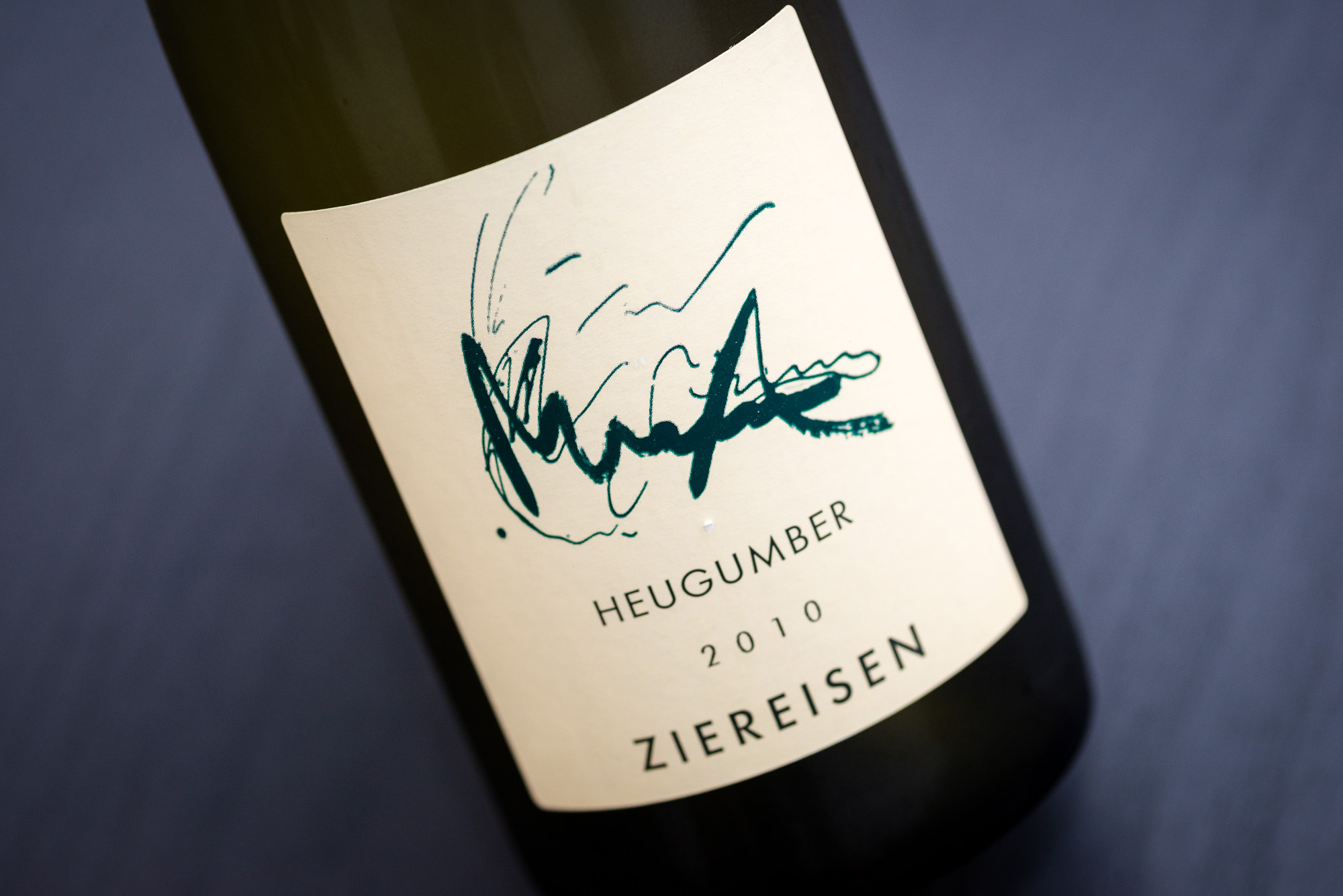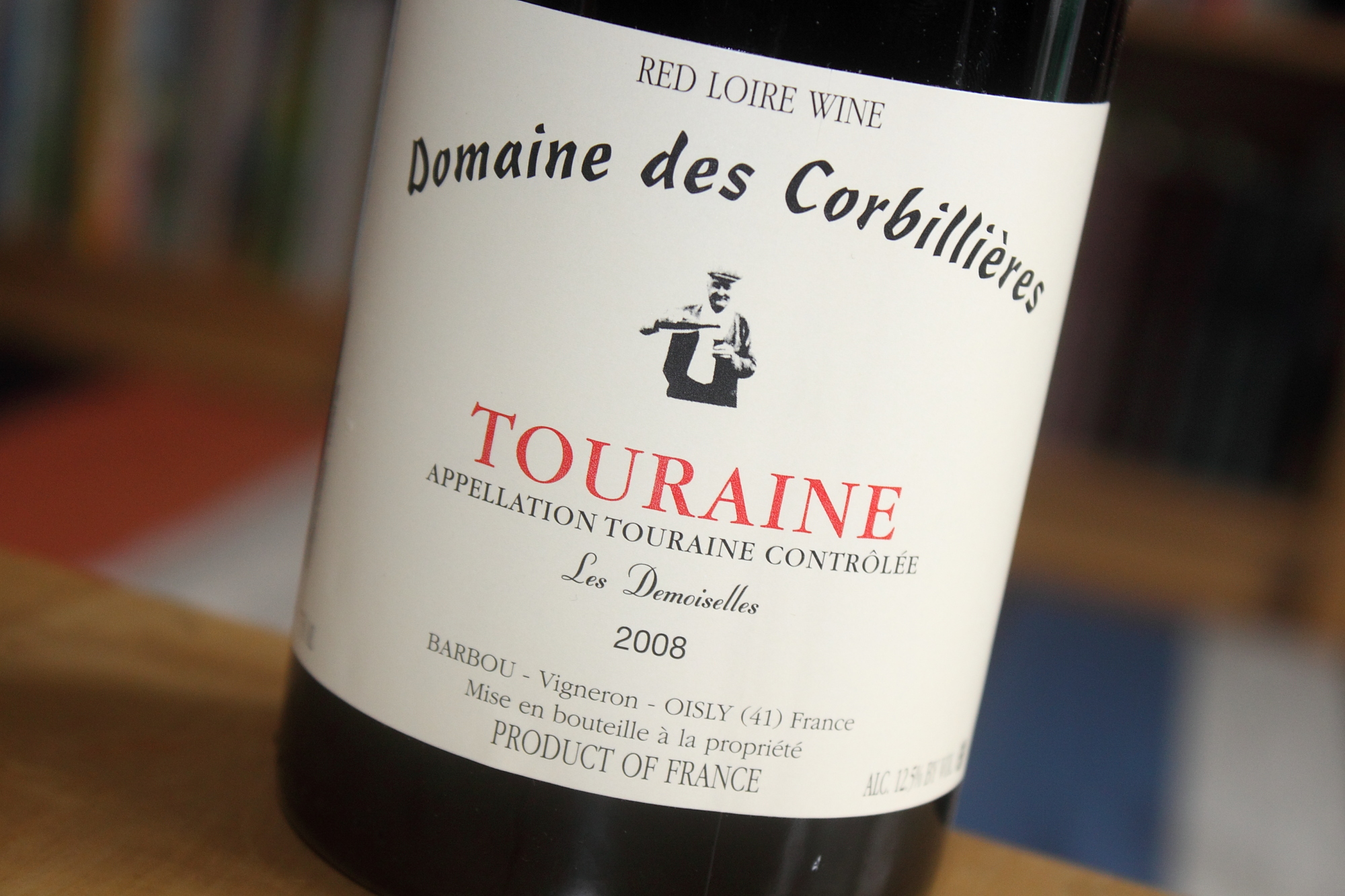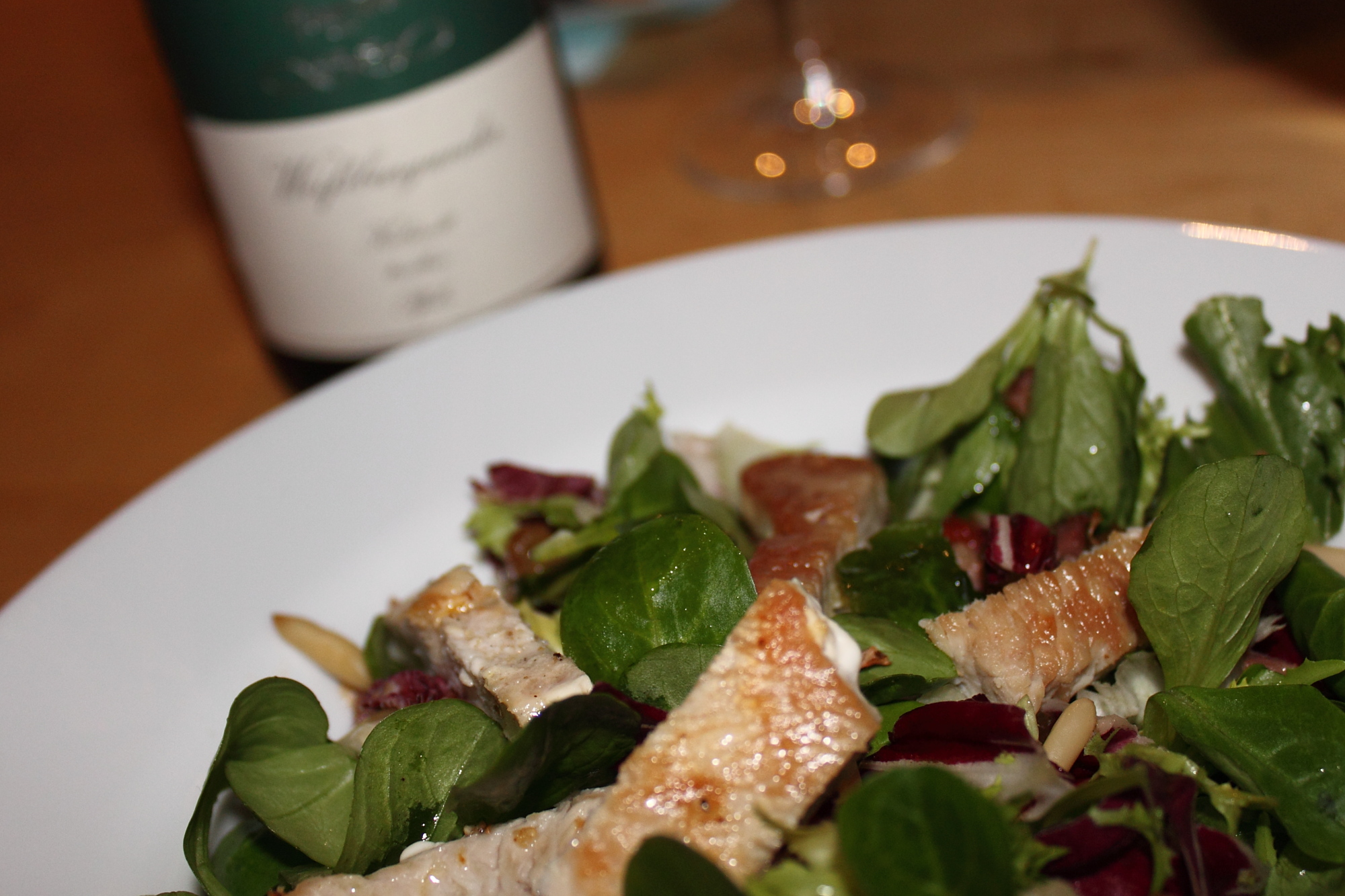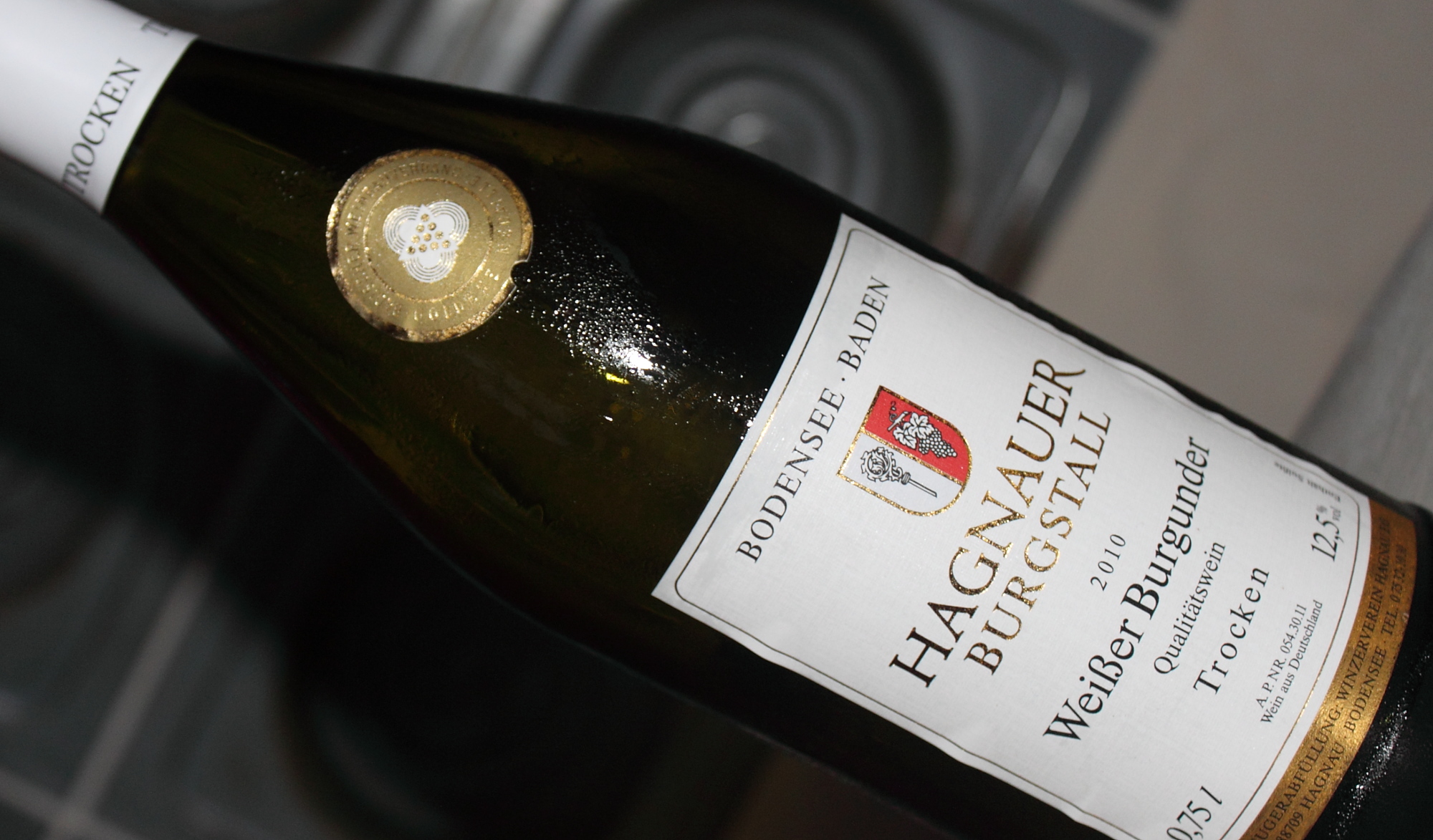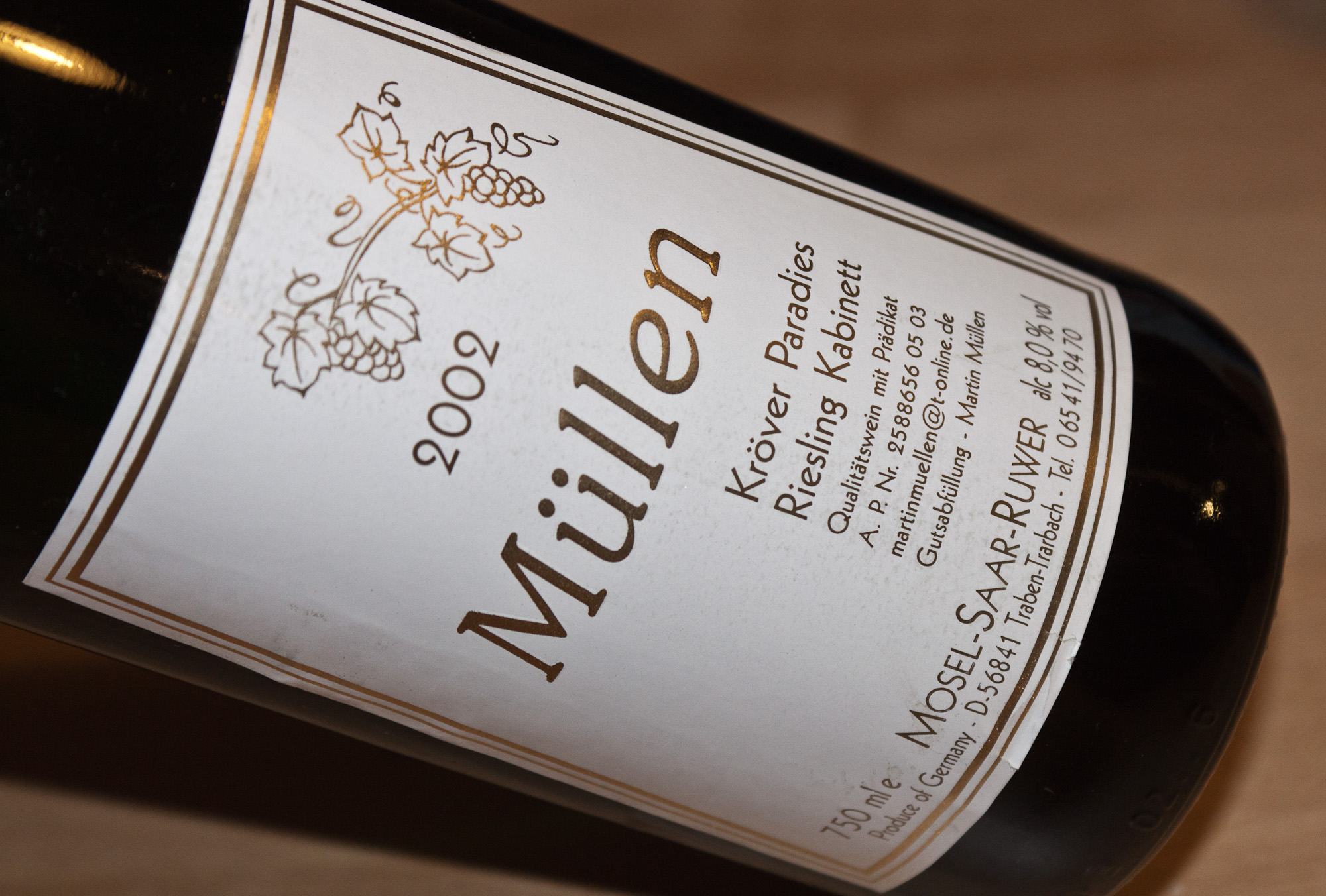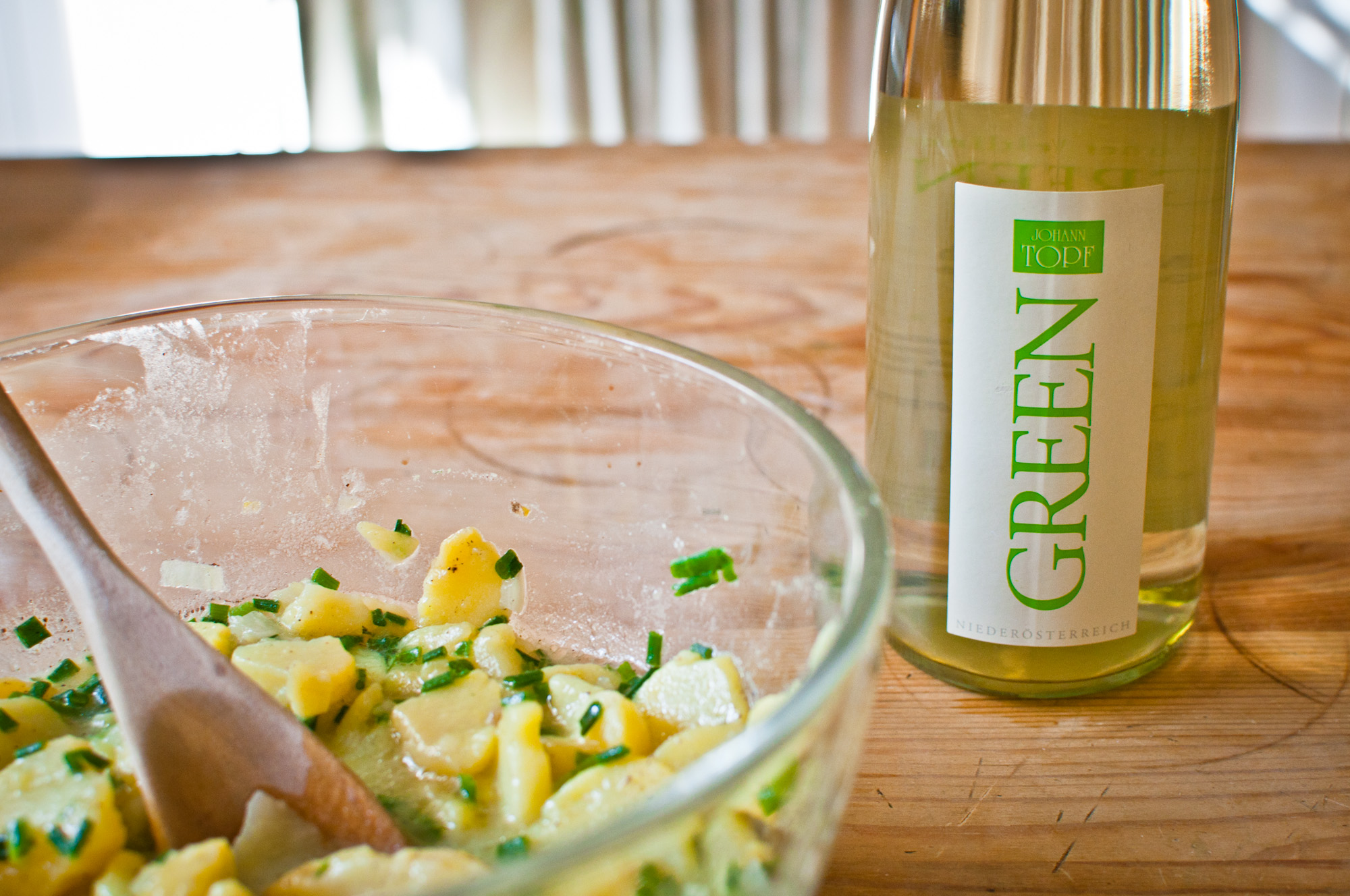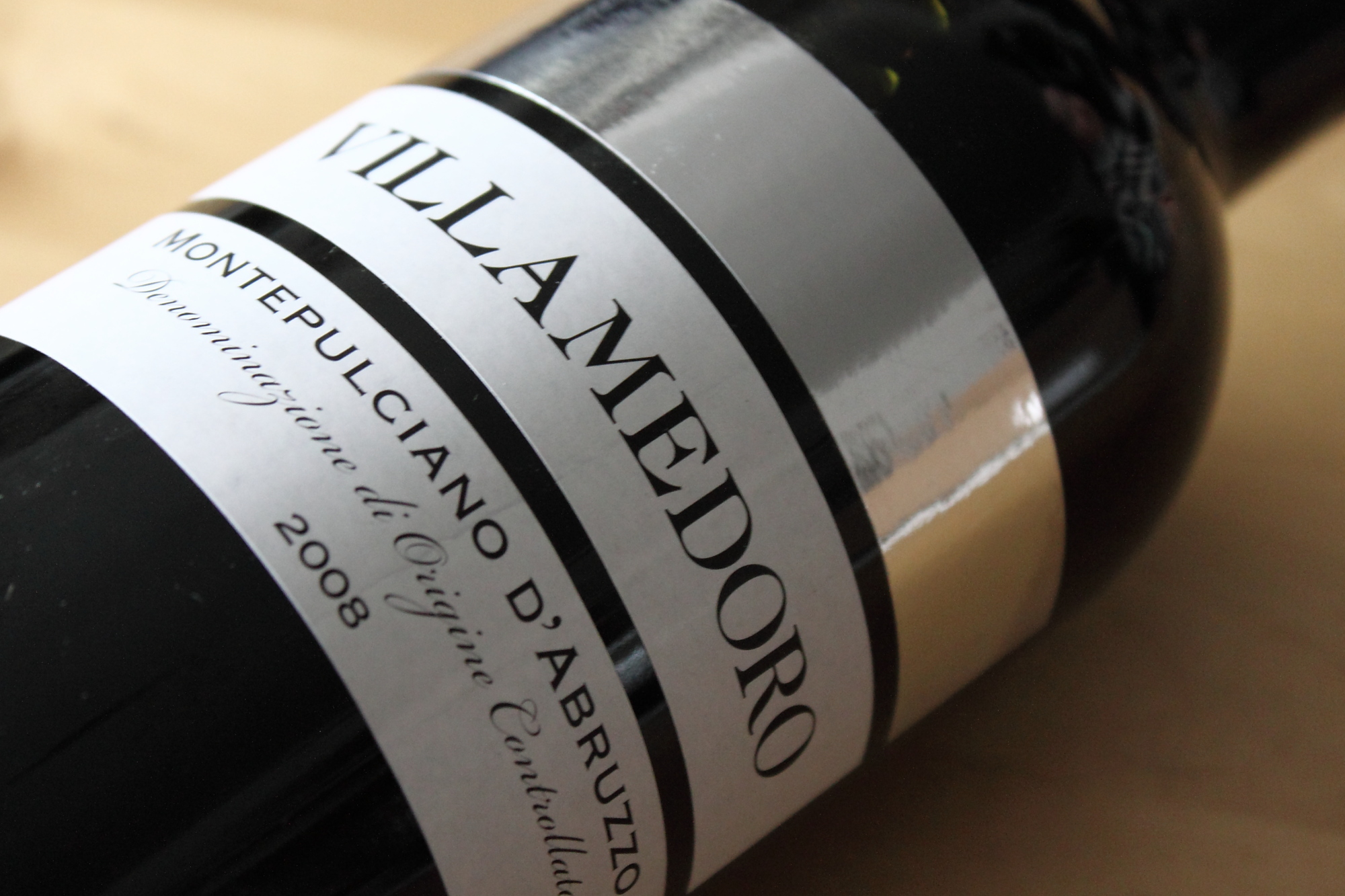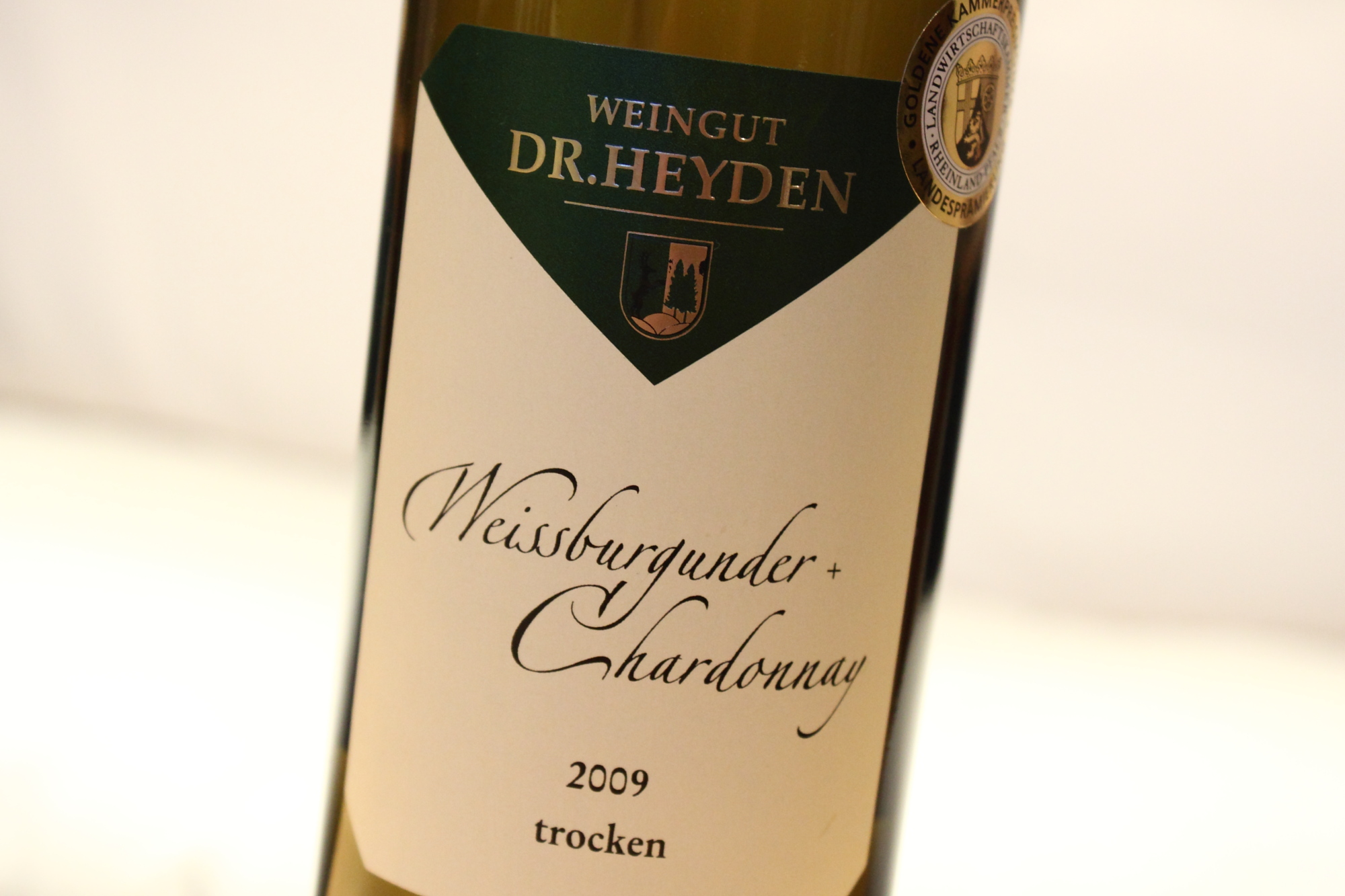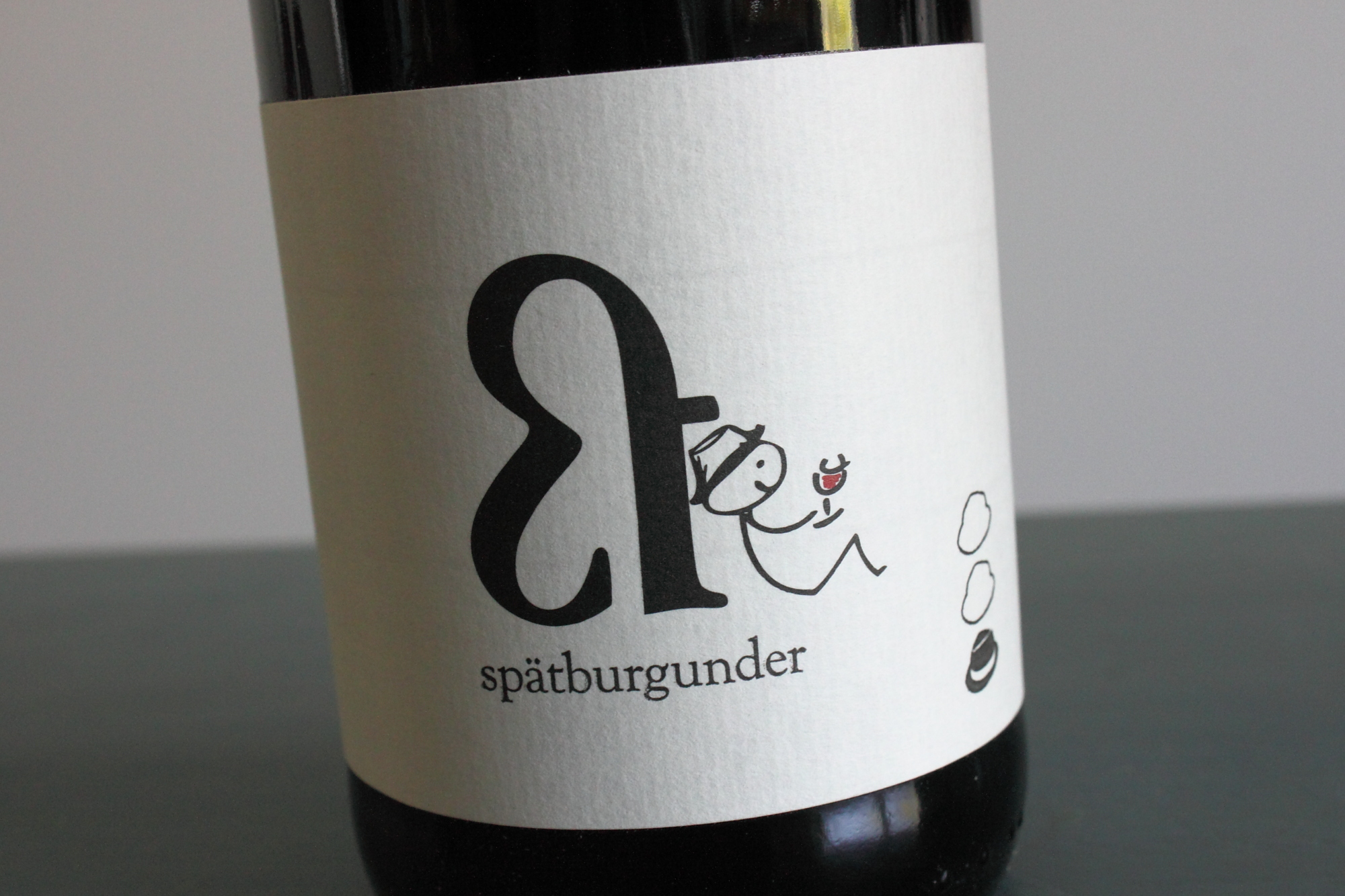Weingut Friedhelm Rinklin, Eichstettener Herrenbuck, Grauburgunder Kabinett trocken, 2011
I was in Freiburg recently for the wonderful occasion of the baptism of my niece. During the church service, the vicar who celebrated it at some point asked the congregation to join him in a prayer of interecession for the responsible production of healthy and sustainable food. Nothing wrong with that (I fervently joined in that prayer), but surely typical of that corner of the country, as it boasts the oldest organic food producers, highest density of organic anything stores and highest level of general relaxed left-liberal getting-it-right-iness in all of Germany. Small wonder that organic winemaking in the Kaiserstuhl sub-region of Baden, just an hour's bicycle ride away from Freiburg, also has deeper roots than elsewhere and is often into its second or even third generation.
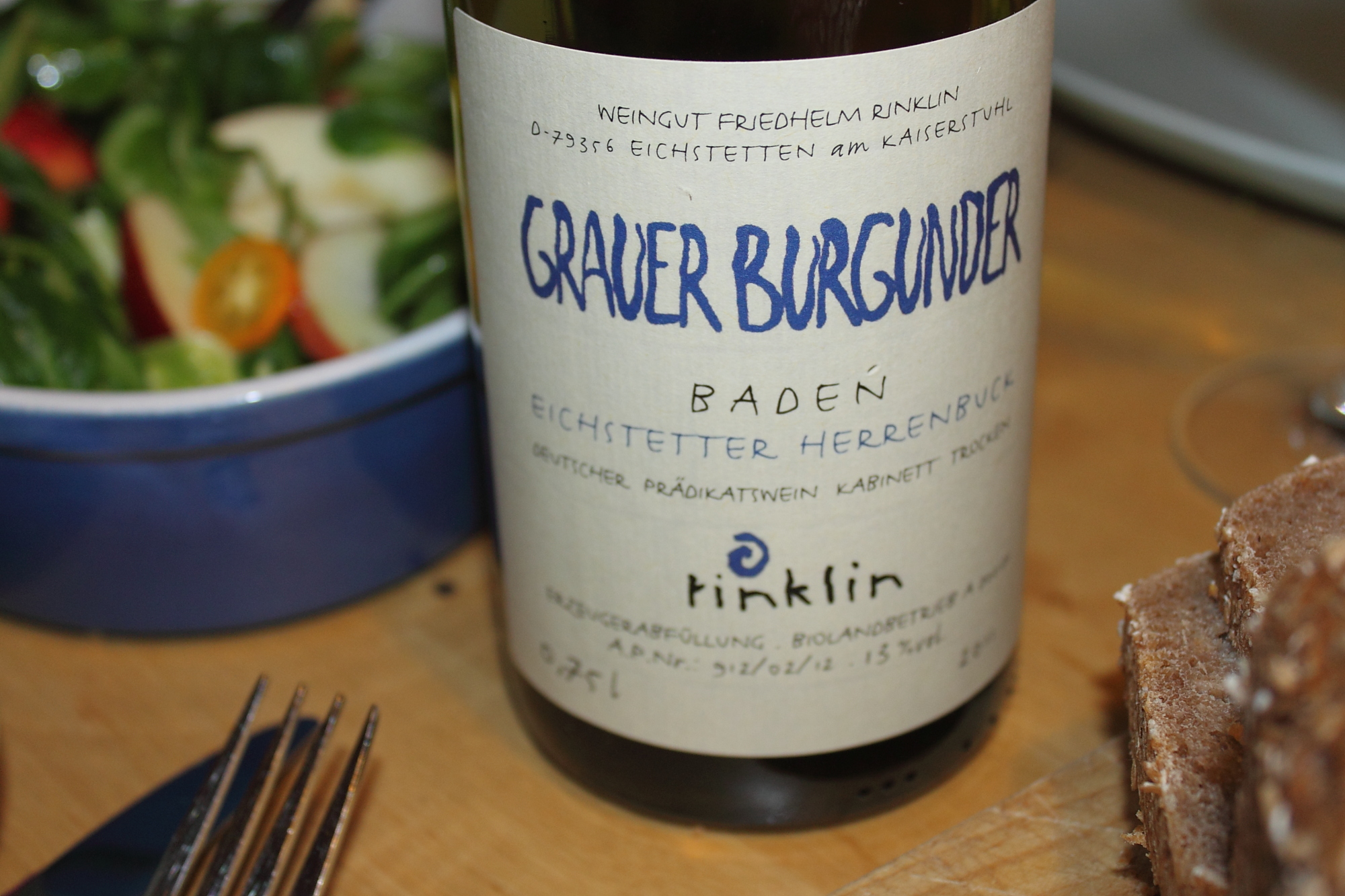
Friedhelm Rinklin, a card-carrying founding member of the organic wine movement in Germany, also has basically done this forever. As early as 1955 already, his father had made the switch to biodynamic winemaking. I imagine that his son looks at those who discover organic wine growing just now with nothing but an ever so slightly raised eyebrow. Does his basic-range, very reasonably prices Pinot Gris exude the same wisdom and experience?

